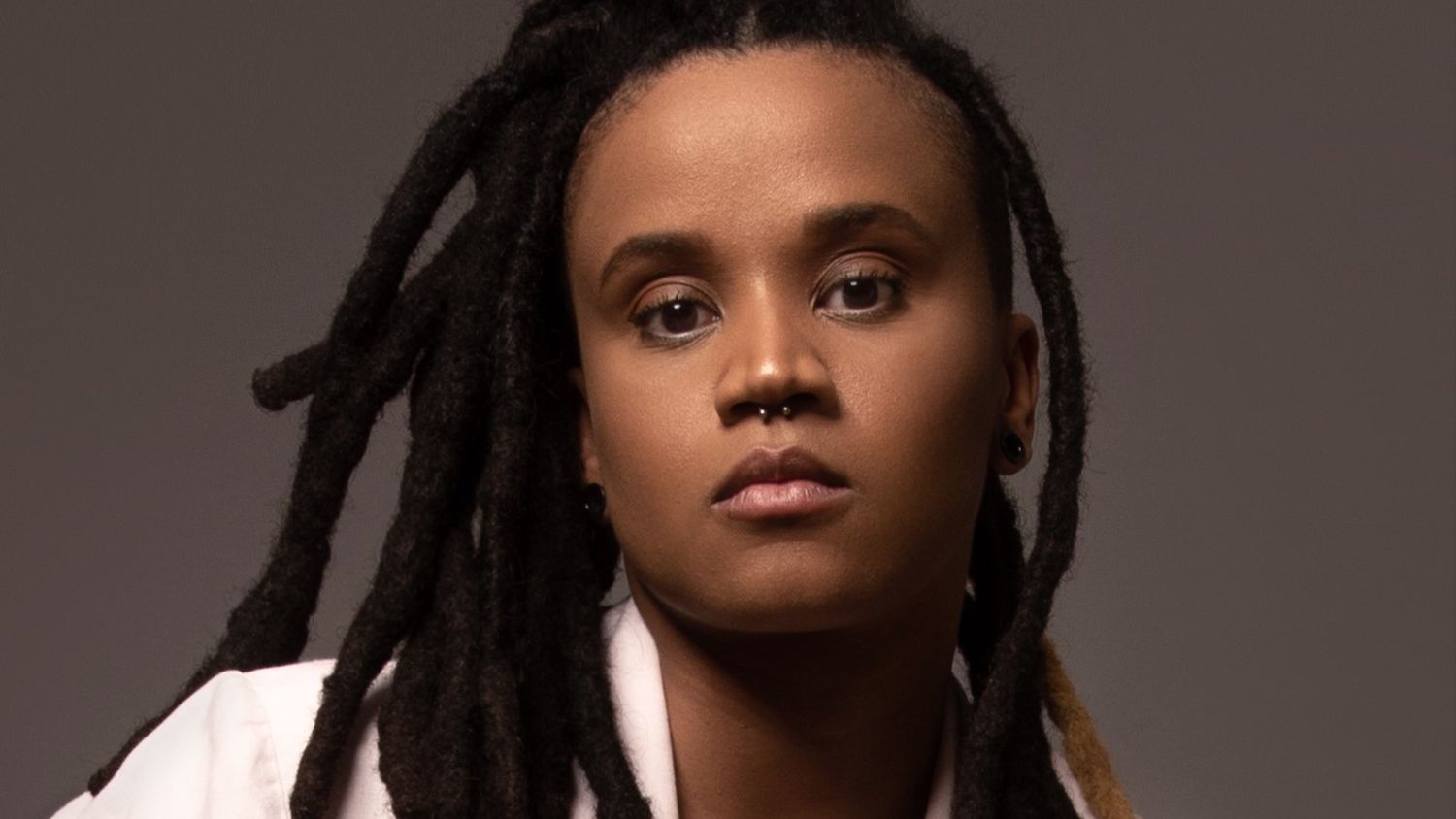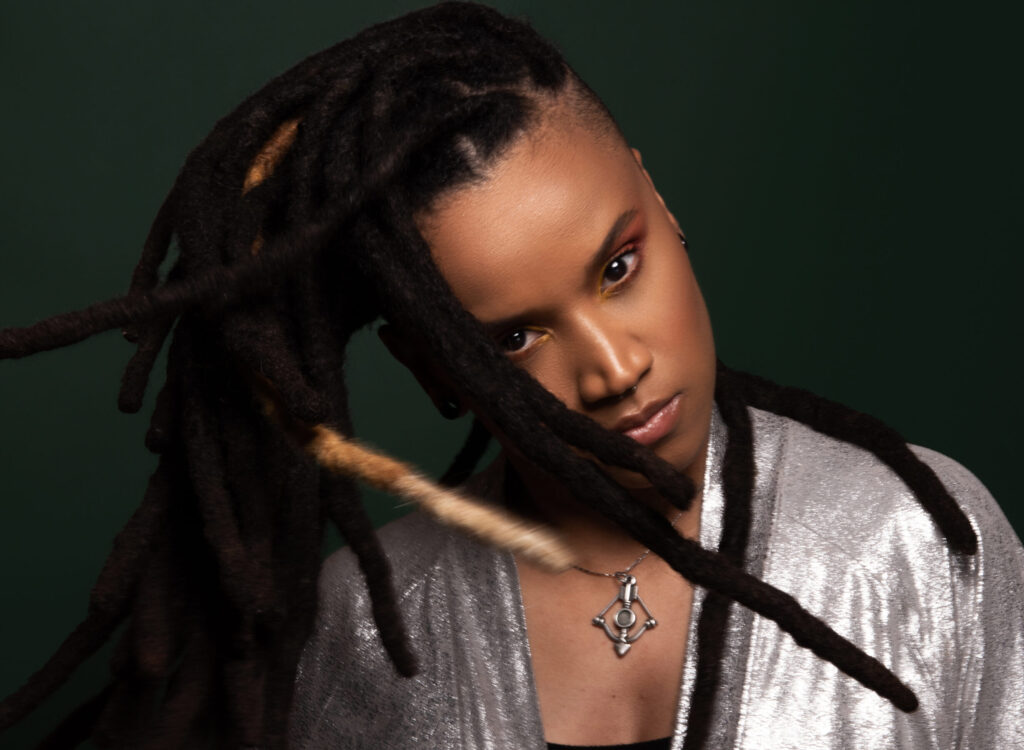
In conversation with Curol
Curol is considered one of the main names in the rise of electronic music and has a fundamental role as a bold and energetic figure in the process of female revolution in the market. Avant-garde, the artist has become an Afro House reference, rescuing her own ancestry through the insertion of organic elements incorporated into House, with Brazilian percussions full of groove and dancing rhythm. In 2022, her presence was confirmed at the IX edition of Rock in Rio, the largest music festival in the world, and she also made an epic performance at the main multicultural festival in Latin America, Universo Paralello. In February 2023, her international debut was at Amazonico London, in England, in addition to being a confirmed artist for Lollapalooza in March of this same year. Curol also won the only award for women in music, which takes place in Brazil, the WME Awards in the Best DJ category in 2021, in addition to being part of the select list of 60 female artists and POC (people of color) from 1001Tracklists, ‘The Future Of Dance’ in 2021 and 2022.

• What did you contribute when creating your remix of “Ogum”? What elements did you highlight to preserve the Afro-Brazilian roots of the track?
The group 3030 asked me to do a remix of a track and I’ve been a fan of theirs for a long time. I felt honored by the invitation and chose “Ogum” because it’s one of my favorite songs. I tried to highlight the flute and guitar even more, bringing in a group of lighter percussions to make the vibe more fluid.
• You are known for your innovative contributions to the Brazilian Afro House scene. How do you balance tradition and modernity in your music?
I think that precisely because I have this identity and representation in a fixed way, I stand out on the global scene, because I end up becoming a reference, modesty aside.
• How important are Brazilian percussive elements in your sets and productions, and how do you adapt them for an international audience?
It is very important for me to transcribe Afro-Brazilian culture beyond music, to have a deep-rooted groove that carries our carnival and our festivity, so I look for the presence of the instruments that make up this groove and this energy, and the international audience loves the Brazilian festive soul.
• You have received support from great artists such as Keinemusik and Black Coffee. What does their recognition mean to you, and how has it influenced your career?
It is curious that I answer this question because this remix of Ogum had its final version after feedback from Adam Port about a small detail in the track, which shows a freedom among Keinemusik, which by the way has given me a great reach with all this support. Currently, I am very grateful for the partnership I have with the collective; many dates have become international due to the visibility that being with them has brought me, both in terms of support for 4 of my own songs and in shows that I was invited by them to compose the lineup in Mexico, Portugal and Brazil. As for Black Coffee, I was their support act on the tour due to the import of my agency.
• Winning the “Best DJ” award at the Women’s Music Events Awards was a significant milestone. How has it impacted your career and your message to women in the music industry?
When I was first told about the nomination, I really had no idea what the award entailed, but I sought out information and today I am an ambassador for the movement because I saw how important it is to empower women. After you gained more attention, I noticed a number of women who are running on the back of their dreams.
• You were the first Brazilian artist to appear on BBC Radio 1’s Soundsystem. What was it like to represent your country on such a prestigious platform?
I was surprised by the invitation because until then I had never left Brazil and my biggest childhood dream was to visit London. Interestingly, the BBC is from London, so I was ecstatic and wondered how my music and my name had reached my dream city. The following year, it was the first country I went to play outside of Brazil. This gave me the truth that I had really managed to expand my work.
• What was the most unexpected stop on your recent summer tour in Europe? How does the European audience respond to your music compared to the Brazilian audience?
It’s a bit of a controversial question, but even though I’m Brazilian, I can’t help but think that foreign audiences are more lively on the dance floor. The most memorable show was in Lisbon with Keinemusik. I played for 3 hours before them and even during a warm-up session, the audience danced and cheered a lot.
• Your remix of “Nocturne” reached number one on Beatport. How would you describe the creative process behind this track and the importance of releasing it on such a renowned label?
When I heard the track, I felt that something was missing, and I composed a fuller identity within my own with the idea of making the track more complete. I confess that it was a critical creative process, just like I did with my remix of Visceral. Interestingly, the original author and Lee Burridge heard it and felt that it was a missing part of the track, so I feel happy with these approvals, especially with the public’s approval in taking it to the top 1.
• Performing for the Brazilian Olympic Committee at the Paris 2024 Olympics is a unique honor. How are you preparing for this event?
I knew that I would be performing for a general Brazilian audience in addition to electronic music, so in my case I brought reinterpretations of Brazilian hits from various eras, and it was no different. A large part of the audience was won over by your ability to sing.
What are your future goals as an artist? Are there any collaborations, festivals, or new musical territories you would like to explore?
My biggest dream is to be in a supermarket while my music is playing in the background and someone is in the same aisle as me singing it even though they don’t know who I am. I’m working hard so that my music reaches unimaginable places and that those who know me remember the values and purposes that I represent in a respectful way and are open to learning instead of judging. I still really want to play Afro House in Japan, and when that happens I know that the other territories may already have been conquered.










